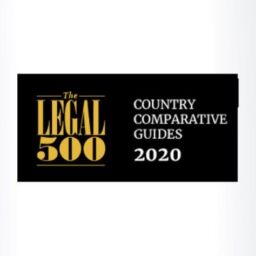Sławomir Łuczak participated in the F.A.Z. International Business Tax Conference, held from 19-20 February 2025 in Berlin.
In connection with the conference, F.A.Z. Business Media GmbH published a special report titled “Tax Conference of the German Economy”, featuring Mr Łuczak’s insights on tax developments in Poland.
Tax developments in Poland
With the beginning of 2025, the professional tax discourse in Poland is centered on several significant changes which have been introduced into the Polish tax system. Entry into force of a law implementing the provisions of Directive 2022/2523 introducing the global minimum tax (Pillar 2) and amendments to the Local Taxes and Fees Act to clarify the definition the difference between “a building” and “a structure” for the purposes of calculating property tax, seem to have had the most impact. Taxpayers are currently analysing the situation in terms of how they will be affected by the new regulations.
As of January 1, 2025, a new law concerning small and medium-sized enterprises (SMEs) has come into force. The aim of the SME scheme, which is the implementation of Directive 2020/285, is to eliminate the disproportionate VAT burden imposed on subject-exempt taxpayers in cross-border transactions between EU member states. Generally, under the new regulations, certain categories of foreign entrepreneurs will be able to obtain VAT exemption without having to register for VAT purposes in Poland.
The current year has seen no change in the provisions that allow entrepreneurs to take advantage of the numerous tax relief schemes particularly focused on supporting innovation activities. Especially noteworthy are the research and development activities relief and the “IP Box” relief minimizing tax burden in the IT industry. In addition to these, Polish tax law also includes the innovative employees relief, the prototyping relief, the robotization relief and the expansion relief (which allows costs associated with promoting a new product to be deducted from the tax base).
Entities included in capital groups will have to analyze their situation in the near future in terms of the aforementioned minimum tax (Pillar 2). In this context, it should be borne in mind that there is still an ongoing doctrinal discussion about the effects of Pillar 2 regulations in the context of applicable tax reliefs and activities within special economic zones. According to assurances from the Ministry of Finance, the issue is expected to be resolved in the near future, but no details have yet been released.












